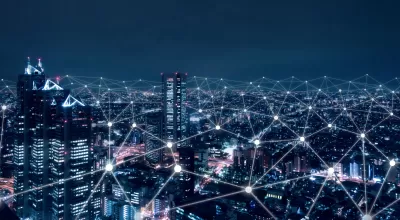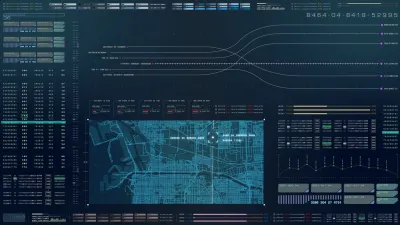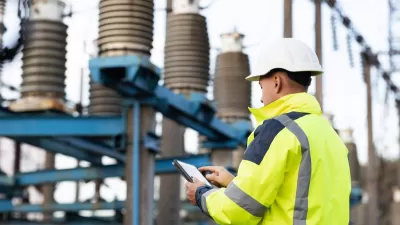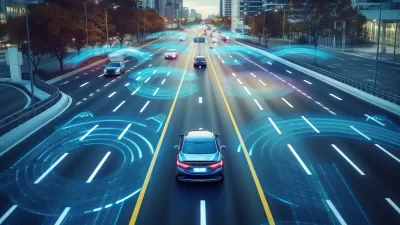Blockchain is far from exclusive to cryptocurrency. Smart cities have a lot to gain from the technology and can thrive with its application.

As the 21st century marches on, one of the industries benefiting the most from digital technology is city building. Smart cities use the latest information and communication technologies for citizens to share information, improve operational efficiency and provide better quality government services than ever before.
These cities use computer and internet technology to promote economic growth and vastly improve the quality of life for citizens. One of the technologies used extensively in smart cities is blockchain technology.
What is a blockchain for smart cities?
Blockchain is a decentralized digital ledger that stores ownership records for digital assets. Data stored in a blockchain cannot be changed or modified—making it one of the most secure methods of protecting digital records.
For a smart city, this is crucial, as younger populations are flocking to urban areas for promised job opportunities and progressive technological adoption. These upticks need reliable tracking technology like the blockchain—especially if urban designers want data to drive determinations about city development.
What makes blockchains so secure is their decentralized nature. Each block in the chain stores data on a separate server, making blockchains groups of servers holding different data. This is in contrast to traditional record-keeping systems, which keep all data on a single server. It’s possible to save money, have a better environmental impact, and support modern lifestyles with secure and reliable smart city tech.
How is blockchain employed in smart cities for sustained use?
One of the primary ways urban designers incorporate blockchain is in bolstered cybersecurity for critical infrastructure. For example, blockchains' protection levels have made them the standard for cybersecurity in financial institutions. Cyber attackers who try to infiltrate blockchains must be able to attack multiple servers at once, which will take a lot of resources since each server has numerous encryptions to protect it. The chances of hackers being successful against a blockchain are very low.
However, the applications of blockchain technology go far beyond protecting data transactions. Any process that requires digital record-keeping can benefit from blockchain tech. Documents like identity records, taxes and permits are all safer with blockchain in a smart city. It’s a useful tool for urban planners for building agreements and confidential blueprints—especially when working with city administrations that need to assure trust and end-to-end encryption for safety.
It’s powerful when working alongside other technologies like Internet of Things-connected devices. It can measure energy consumption to provide next steps for thoughtful grid modernization leading to low-cost, clean power distribution. It can also empower public transportation to adopt smart mobility that protects payments, tracks routes and notifies operators of maintenance needs.
The education sector in particular is poised to benefit significantly from blockchain tech. Educational institutions handle the personal data of hundreds of students and faculty members. A blockchain data network can make storing and transferring that information safer and more efficient. Local artisans and creatives could leverage it for expanding their services to Web3 assets like NFTs, especially for official city use to avoid corruptive practices and protect their intellectual property.
How do urban planners popularize blockchain?
One can apply the advantages of blockchains to governmental functions such as health care, education and legal institutions. However, the tech still has drawbacks that could concern urban designers and citizens, such as excessive data collection, overreliance on potentially inaccurate data, and upfront cost for blockchain implementation with no quantitative return on investment. The only way to popularize blockchain in smart cities is for urban planners to install it in a way that challenges these negatives and overcomes them.
Blockchains can create a digital supply chain record that provides transparency. The concerned parties can access and track items in real-time, and fear dissolves if cities use smart contracts. Smart contracts are blockchain staples that oversee agreements and execute programs when parties meet the conditions. Every facet of the city can use these to protect budgets and service quality, such as grant donors, waste disposal vehicles and ambulances.
Blockchain technology can easily combine with other digital technologies, such as artificial intelligence, wearables and mobile devices. Accentuating its versatility with these modern luxuries will increase blockchain popularity, too. It can ensure connectivity between all the devices in a network stays encrypted and stores records of their use and what transpired during an event. Spreading education about blockchain to citizens will reveal how these tools prevent fraud and provide stakeholder relief instead of jeopardizing them.
Blockchains can make smart cities greater
Blockchain technology has much to offer smart cities. The possibilities are numerous, from exceptional cybersecurity to streamlined supply and information chains. As the years go on and technology advances, smart cities will find new ways to serve their citizens.

Alabama: Trump Terminates Settlements for Black Communities Harmed By Raw Sewage
Trump deemed the landmark civil rights agreement “illegal DEI and environmental justice policy.”

Planetizen Federal Action Tracker
A weekly monitor of how Trump’s orders and actions are impacting planners and planning in America.

The 120 Year Old Tiny Home Villages That Sheltered San Francisco’s Earthquake Refugees
More than a century ago, San Francisco mobilized to house thousands of residents displaced by the 1906 earthquake. Could their strategy offer a model for the present?

LA’s Tree Emergency Goes Beyond Vandalism
After a vandal destroyed dozens of downtown LA trees, Mayor Karen Bass vowed to replace them. Days later, she slashed the city’s tree budget.

Sacramento Leads Nation With Bus-Mounted Bike Lane Enforcement Cameras
The city is the first to use its bus-mounted traffic enforcement system to cite drivers who park or drive in bike lanes.

Seattle Voters Approve Social Housing Referendum
Voters approved a corporate tax to fund the city’s housing authority despite an opposition campaign funded by Amazon and Microsoft.
Urban Design for Planners 1: Software Tools
This six-course series explores essential urban design concepts using open source software and equips planners with the tools they need to participate fully in the urban design process.
Planning for Universal Design
Learn the tools for implementing Universal Design in planning regulations.
Ada County Highway District
Clanton & Associates, Inc.
Jessamine County Fiscal Court
Institute for Housing and Urban Development Studies (IHS)
City of Grandview
Harvard GSD Executive Education
Toledo-Lucas County Plan Commissions
Salt Lake City
NYU Wagner Graduate School of Public Service






























